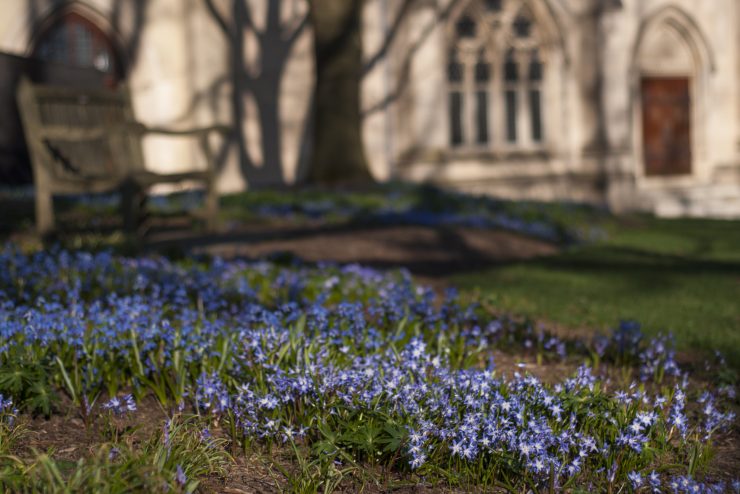Pray in this Way

Matthew 6:7-15
Jesus said, “When you are praying, do not heap up empty phrases as the Gentiles do; for they think that they will be heard because of their many words. Do not be like them, for your Father knows what you need before you ask him. Pray then in this way: Our Father in heaven, hallowed be your name. Your kingdom come. Your will be done, on earth as it is in heaven. Give us this day our daily bread. And forgive us our debts, as we also have forgiven our debtors. And do not bring us to the time of trial, but rescue us from the evil one. For if you forgive others their trespasses, your heavenly Father will also forgive you; but if you do not forgive others, neither will your Father forgive your trespasses.”
The Lord’s Prayer must surely be the most well-known Christian prayer. Amidst the manifold divisions of Christianity, it is a prayer that we all hold dear and in common. Every liturgy in The Book of Common Prayer includes the Lord’s Prayer, from daily prayer to weddings to funerals. It has such pride of place in our tradition because it is, of course, the prayer that Jesus taught us. The introduction found in the eucharistic liturgy reminds of us this fact: “And now, as our Savior Christ has taught us, we are bold to say” (BCP 363).
Familiarity and repeated use of a prayer can all too easily prevent us from reflecting deeply on its content. This passage from Matthew offers us an opportunity to reconsider the richness of this familiar text. Jesus begins this lesson on prayer by offering a negative example: “do not heap up empty phrases as the Gentiles do; for they think that they will be heard because of their many words” (6:7). Sincerity and directness in our prayer are more important than abundance of words or elegance of expression. This prayer that Jesus gives us in order to teach us how to pray models a directness and immediacy to our requests. The first three petitions concern God, and the final four are petitions concerned with our human needs. When we pause to consider them, we will find that they are such simple requests: give us our bread, our provisions, that we need for this day; forgive us our debts (or sins, as the version in Luke 11:4 puts it); deliver us from times of persecution and hardship; save us from evil and the forces of wickedness. Simple yet powerful, these requests are ones we do well to pray every day and every time we gather for communal worship, allowing this model to inform all our prayer practices.
When you pray the Lord’s Prayer this Lent, I hope you will hear it and pray it with freshness, learning from it how Jesus teaches us to pray—simply and sincerely for the things we most need this day and every day.
prayer
Grant to your people, Lord, grace to withstand the temptations of the world, the flesh, and the devil, and with pure hearts and minds to follow you, the only true God; through Jesus Christ your Son our Lord, who lives and reigns with you and the Holy Spirit, one God, for ever and ever. Amen. (Lesser Feasts and Fasts, 2006, p. 33)
Daily Lenten meditations each have a companion morning prayer video offered by the same clergy. View the YouTube playlist to find this meditation’s companion video, or to watch others.